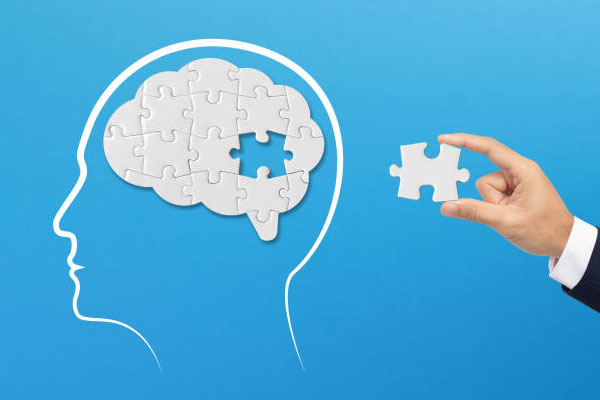9 Essential Nutrients to Promote Brain Function
Discover the crucial nutrients that support brain health and cognitive function Learn how mindful eating can help you make better dietary choices for improved mental well-being
The human brain is a complex and vital organ that requires proper nourishment to function at its best. Diet plays a crucial role in maintaining and enhancing brain health. The nutrients you consume can impact cognitive function, memory, mood, and overall neurological well-being.
This article explores the key nutrients that support brain health and provides insights into how they affect various aspects of cognitive and emotional function. We'll also discuss natural dietary sources and supplements that can help you maintain optimal brain health throughout life.

Understanding Key Nutrients for Brain Health
Your brain's health is intricately linked to the intake of various key nutrients. These essential nutrients play vital roles in maintaining cognitive functions, protecting the brain from damage, and supporting overall brain health. Let's explore these nutrients in detail:
1. Omega-3 Fatty Acids
Omega-3 fatty acids, such as EPA and DHA found in fatty fish, walnuts, and flaxseeds, are critical for maintaining brain cell structure. They support healthy neuron function and help manage inflammation, contributing to cognitive well-being.
2. Antioxidants
Antioxidants like vitamins C and E, as well as beta-carotene, protect the brain from oxidative stress and free radical damage. They are abundant in colorful fruits and vegetables and provide essential defense mechanisms for brain health.
3. B Vitamins
B vitamins, especially B6, B9 (folate), and B12, assist in neurotransmitter production, such as serotonin and dopamine. They can be found in foods like leafy greens, poultry, and fortified cereals, supporting mood and cognitive functions.
4. Vitamin D
Vitamin D, primarily obtained through sunlight and supplements, plays a role in brain development and function. It influences various neurochemicals in the brain and has been associated with cognitive health.
5. Minerals: Zinc, Iron, and Magnesium
Zinc, iron, and magnesium are essential for various aspects of brain function, such as memory, learning, and maintaining healthy brain tissue. Foods like lean meats, beans, and leafy greens are rich sources.
6. Phospholipids
Phospholipids are a class of lipids that provide the structural framework of brain cell membranes. They are abundant in foods like eggs, soybeans, and sunflower seeds, contributing to cognitive function.
7. Amino Acids
Amino acids, particularly tyrosine and tryptophan, are precursors to neurotransmitters like dopamine and serotonin. Foods rich in protein, such as meat, dairy, and legumes, provide these amino acids to support mood and mental health.
8. Polyphenols
Polyphenols, found in various fruits, vegetables, and teas, possess antioxidant and anti-inflammatory properties. They may help protect the brain against age-related decline and improve cognitive function.
9. Choline
Choline, found in foods like eggs and certain vegetables, is essential for the production of acetylcholine, a neurotransmitter vital for memory and muscle control. It plays a role in cognitive function and memory preservation.
By understanding the roles and sources of these key nutrients, you can make informed dietary choices to support your brain's health and cognitive performance.
How Key Nutrients Support Brain Health
Understanding how essential nutrients support brain health is crucial for making informed dietary choices. Here's a breakdown of how key nutrients contribute to optimal brain function:
1. Omega-3 Fatty Acids
Omega-3 fatty acids support brain cell structure and function, helping maintain cognitive health. They also reduce inflammation in the brain, protecting against cognitive decline.
2. Antioxidants
Antioxidants, such as vitamins C and E, safeguard the brain from oxidative stress and damage caused by free radicals, promoting long-term cognitive well-being.
3. B Vitamins
B vitamins, like B6, B9 (folate), and B12, play a crucial role in neurotransmitter production, which influences mood and cognitive functions, including memory and concentration.
4. Vitamin D
Vitamin D influences various neurochemicals in the brain and is essential for brain development and function. Maintaining adequate vitamin D levels is vital for cognitive health.
5. Minerals: Zinc, Iron, and Magnesium
Zinc, iron, and magnesium are essential for memory, learning, and maintaining healthy brain tissue. They support various cognitive functions.
6. Phospholipids
Phospholipids are structural components of brain cell membranes. They help maintain cell integrity and cognitive function.
7. Amino Acids
Amino acids, such as tyrosine and tryptophan, are precursors to important neurotransmitters. They play a role in mood regulation and mental health.
8. Polyphenols
Polyphenols have antioxidant and anti-inflammatory properties. They protect the brain against age-related decline and may improve cognitive function.
9. Choline
Choline is essential for acetylcholine production, a neurotransmitter vital for memory and muscle control. It contributes to cognitive function and memory preservation.
By incorporating these nutrients into your diet, you can better support your brain's health, enhancing cognitive performance and overall well-being.
Sources of Brain-Boosting Nutrients
Obtaining essential nutrients for brain health from your diet is crucial. Here's a closer look at dietary sources for key nutrients that support brain function:
1. Omega-3 Fatty Acids
Fish, such as salmon, mackerel, and trout, are rich sources of omega-3 fatty acids. Plant-based options include flaxseeds, chia seeds, and walnuts.
2. Antioxidants
Fruits and vegetables like berries, citrus fruits, and spinach provide antioxidants. Nuts, seeds, and whole grains are also excellent sources.
3. B Vitamins
Include lean meats, poultry, fish, dairy products, and leafy greens in your diet to get essential B vitamins. Fortified cereals and grains are good sources for B vitamins as well.
4. Vitamin D
Your body produces vitamin D when exposed to sunlight. Fatty fish like salmon and mackerel are dietary sources of this nutrient. Fortified dairy and plant-based milk are also available.
5. Minerals: Zinc, Iron, and Magnesium
Lean meats, legumes, and nuts provide zinc and iron. Magnesium is abundant in leafy greens, nuts, and whole grains.
6. Phospholipids
Eggs and soybeans are rich in phospholipids, crucial for brain cell membrane integrity.
7. Amino Acids
Poultry, dairy, tofu, and soy products are sources of amino acids that support neurotransmitter production.
8. Polyphenols
Foods like dark chocolate, berries, and tea contain polyphenols, which have antioxidant properties beneficial for the brain.
9. Choline
Egg yolks, lean meats, and cruciferous vegetables like broccoli are good dietary sources of choline.
By incorporating these brain-boosting nutrients from a variety of sources, you can ensure your diet supports optimal brain health and cognitive function.
Brain-Boosting Supplements
In addition to obtaining essential nutrients from your diet, certain supplements can further support brain health. Here are some supplements that are often considered beneficial:
1. Omega-3 Fish Oil
Omega-3 fish oil supplements provide the same beneficial fatty acids found in fish. They can support brain function and are readily available in capsule form.
2. Antioxidant Supplements
Vitamin C, vitamin E, and other antioxidants are available in supplement form. These can complement your dietary intake to enhance brain health.
3. B Vitamin Complex
A B vitamin complex supplement ensures you get all the essential B vitamins that support brain function. It's a convenient option if your diet lacks variety.
4. Vitamin D Supplements
Vitamin D supplements can be beneficial, especially if you have limited sun exposure. They are available in various forms, including capsules and chewable tablets.
5. Mineral Supplements
If you have deficiencies, supplements like iron, zinc, and magnesium can be taken to correct imbalances and support brain health.
6. Phosphatidylserine (PS)
Phosphatidylserine supplements derived from soy or cabbage can support cognitive function and memory.
7. Amino Acid Supplements
Amino acids like L-tyrosine and L-theanine are available in supplement form and can support neurotransmitter balance in the brain.
8. Ginkgo Biloba
Ginkgo biloba supplements are known for their potential to enhance cognitive function and improve blood circulation in the brain.
Before starting any supplements, it's essential to consult with a healthcare professional, as individual needs vary. They can help determine if supplementation is necessary and provide guidance on the right dosages.
Frequently Asked Questions About Brain Health and Nutrition
Q1: Can dietary choices really impact brain health?
A1: Yes, your diet plays a significant role in brain health. Consuming a variety of nutrient-rich foods can help support cognitive function and protect against age-related cognitive decline.
Q2: What are the key nutrients for brain health?
A2: Key nutrients for brain health include omega-3 fatty acids, antioxidants, B vitamins, vitamin D, minerals like iron and zinc, and amino acids. These nutrients support various aspects of brain function.
Q3: Can I get all these nutrients from food alone?
A3: While a balanced diet is the best source of these nutrients, supplements can be helpful if you have specific deficiencies. It's important to consult with a healthcare professional to determine your individual needs.
Q4: Are there specific foods that boost brain health?
A4: Yes, certain foods are known to support brain health. These include fatty fish, berries, nuts, seeds, leafy greens, and whole grains. Incorporating these into your diet can be beneficial.
Q5: How can I make mindful eating a part of my daily routine?
A5: To practice mindful eating, focus on being present during meals, savor the flavors and textures of your food, and eat slowly. Avoid distractions like TV or smartphones and pay attention to your body's hunger and fullness cues.
